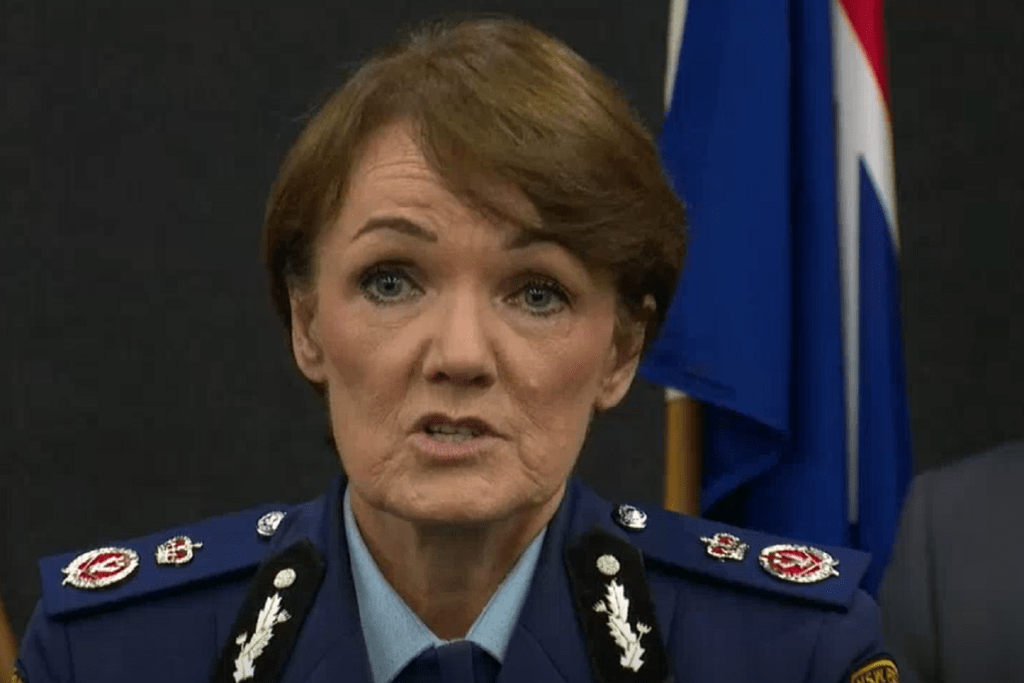It’s been three months since NSW’s coercive control laws came into effect, and so far, just one person has been charged with the offence.
But NSW Police Commissioner Karen Webb has revealed authorities have been and continue to investigate more than 80 cases of coercive control.
In an interview with ABC News, Commissioner Webb said coercive control cases are “more complex” and take “more time”, meaning any investigation will likely be directed to senior officers and detectives.
“It will take more than a general duties shift,” Commissioner Webb said, “so we want to make sure that we do the investigations properly and get the right outcomes for victims.”
Coercive control is a type of family and domestic violence that up until recently was rarely considered a serious form of abuse: there was very little research into coercive control, and in NSW, there was no legislation to charge perpetrators.
Women are more likely to experience coercive control from a current or former partner than men in Australia. According to statistics from the Australian Institute of Health and Welfare (AIHW), almost a quarter (23 per cent) of women and 14 per cent of men have experienced emotional abuse by a current or former partner.
Speaking with the ABC, Commissioner Webb said cases of domestic violence, including coercive control, take up the majority of police officers’ time.
“There are no tests for what coercive control is, so it will really be a matter of a really in-depth statement to corroborate the evidence of the victim and that does take time,” Commissioner Webb said.
Last year, the NSW Law Enforcement Conduct Commission (LECC) published a report that looked into how NSW Police were responding to cases of family, domestic and sexual violence.
Of the 13 recommendations delivered in the NSW LECC report, just one was supported in full, while three were not supported at all, and the rest were agreed to in principle.
Commissioner Webb defended her response to the report, and although majority were not supported in full, the recommendations provided “good guidance” for her.
“Just because I haven’t accepted them in full, doesn’t mean we aren’t already doing work on it,” Commissioner Webb said.
“I have taken a lot of action on most of those recommendations.”
Among other recommendations that were not supported by NSW Police, the LECC recommendation for NSW Police to activate body-worn cameras when attending a domestic and family violence incident was not supported “for a number of reasons”, the Commissioner said.
“It is encouraged that officers turn on their body-worn [camera],” Commissioner Webb said.
“Some of that (the reasons for not support in full) is about technology, it’s about capability, so when we’ve got the new capability online, I can review that.”
Commissioner Webb also confirmed that she is responding to the finding in the report that police officers’ training was “insufficient” in “correctly identifying the primary aggressor and the primary victim”.
She said that “all officers post-2021” will be required to complete a “DV fundamentals training course” that teaches authorities how to respond in a trauma-informed manner, “so there’s no misidentification about primary aggressor and the primary victim”.
“Certainly there’s elements in that coercive control training that go to the issue of identification of a primary aggressor,” Commissioner Webb said.
If you or someone you know is experiencing, or at risk of experiencing, domestic, family or sexual violence, call 1800RESPECT on 1800 737 732, text 0458 737 732 or visit 1800RESPECT.org.au for online chat and video call services.
If you’re a young person struggling and need someone to talk to, remember that you don’t have to face it alone. Reach out to Kids Helpline at 1800 55 1800 for free, confidential support. They’re available 24/7 to listen and help you through whatever you’re going through.
If you are concerned about your behaviour or use of violence, you can contact the Men’s Referral Service on 1300 766 491 or visit http://www.ntv.org.au.
Feeling worried or no good? No shame, no judgement, safe place to yarn. Speak to a 13YARN Crisis Supporter, call 13 92 76. This service is available 24 hours a day, 7 days a week.

